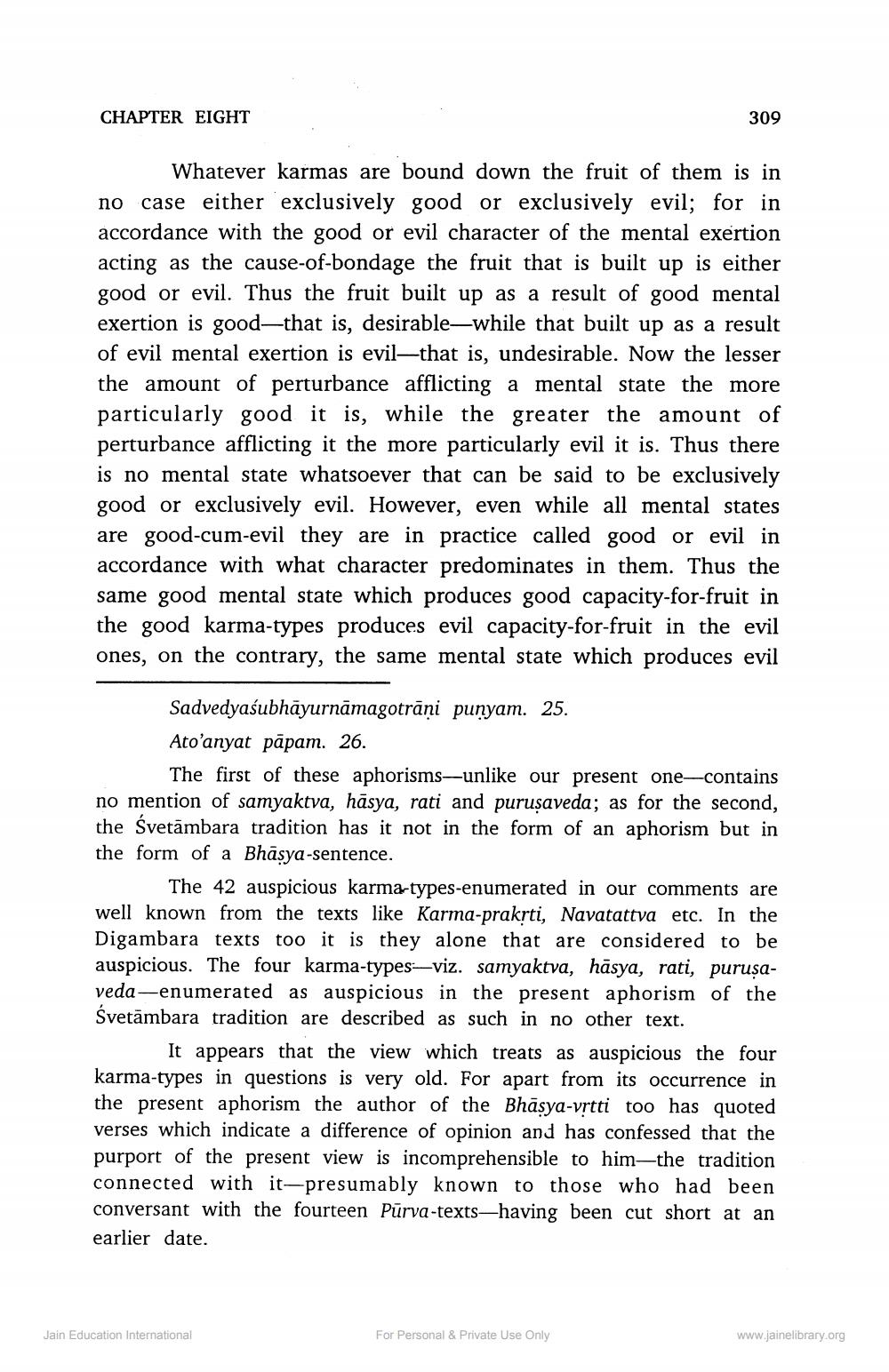________________
CHAPTER EIGHT
309
Whatever karmas are bound down the fruit of them is in no case either exclusively good or exclusively evil; for in accordance with the good or evil character of the mental exertion acting as the cause-of-bondage the fruit that is built up is either good or evil. Thus the fruit built up as a result of good mental exertion is good—that is, desirable—while that built up as a result of evil mental exertion is evil—that is, undesirable. Now the lesser the amount of perturbance afflicting a mental state the more particularly good it is, while the greater the amount of perturbance afflicting it the more particularly evil it is. Thus there is no mental state whatsoever that can be said to be exclusively good or exclusively evil. However, even while all mental states are good-cum-evil they are in practice called good or evil in accordance with what character predominates in them. Thus the same good mental state which produces good capacity-for-fruit in the good karma-types produces evil capacity-for-fruit in the evil ones, on the contrary, the same mental state which produces evil
Sadvedyaśubhāyurnāmagotrāņi punyam. 25. Ato'anyat pāpam. 26.
The first of these aphorisms—unlike our present one-contains no mention of samyaktva, hāsya, rati and puruşaveda; as for the second, the “vetāmbara tradition has it not in the form of an aphorism but in the form of a Bhāsya -sentence.
The 42 auspicious karma-types-enumerated in our comments are well known from the texts like Karma-prakrti, Navatattva etc. In the Digambara texts too it is they alone that are considered to be auspicious. The four karma-types-viz. samyaktva, hāsya, rati, purusaveda-enumerated as auspicious in the present aphorism of the Svetämbara tradition are described as such in no other text.
It appears that the view which treats as auspicious the four karma-types in questions is very old. For apart from its occurrence in the present aphorism the author of the Bhāsya-vrtti too has quoted verses which indicate a difference of opinion and has confessed that the purport of the present view is incomprehensible to him—the tradition connected with it-presumably known to those who had been conversant with the fourteen Pūrva-texts—having been cut short at an earlier date.
Jain Education International
For Personal & Private Use Only
www.jainelibrary.org




